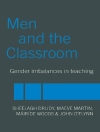This book contemplates current crises guided by a core Buddhist teaching: the roots of deepest suffering lie in what we grasp most tightly. Thus, tightly held ideas from ‘the enlightenment’ – rationality, individuality, equality and secularity – are considered as sources of suffering: technocracy, broken politics and ‘moral acrimony’. Freedom lies not in accepting or rejecting these views, but in seeing where they’ve become dogmas, feeding cultural addiction to certainty and control. Liam Kavanagh is an embodied cognitive scientist, deeply influenced by Zen, who directs research at Life Itself, a community of people for a wiser, weller world. Past work in development economics convinced him that recognising and unlearning ideology is the most important step towards imagining futures worth creating. He helps create opportunities for this by organising residential learning communities, dialogues between Science and Zen, and contemplative activist groups.
Table of Content
A Preview
Introduction
1 Will Climate Change Cause Us to Wise Up, Finally?
2 A Contemplation of a Few Key Elements of Western History
3 Major Attachments and Their Shadows
4 Doing Something
5 Contemplative Activism
Endnotes
About the author
Liam Kavanagh is an embodied cognitive scientist, deeply influenced by Zen, who directs research at Life Itself, a community of people for a wiser, weller world. Past work in development economics convinced him that recognising and unlearning ideology is the most important step towards imagining futures worth creating. He helps create opportunities for this by organising residential learning communities, dialogues between Science and Zen, and contemplative activist groups












